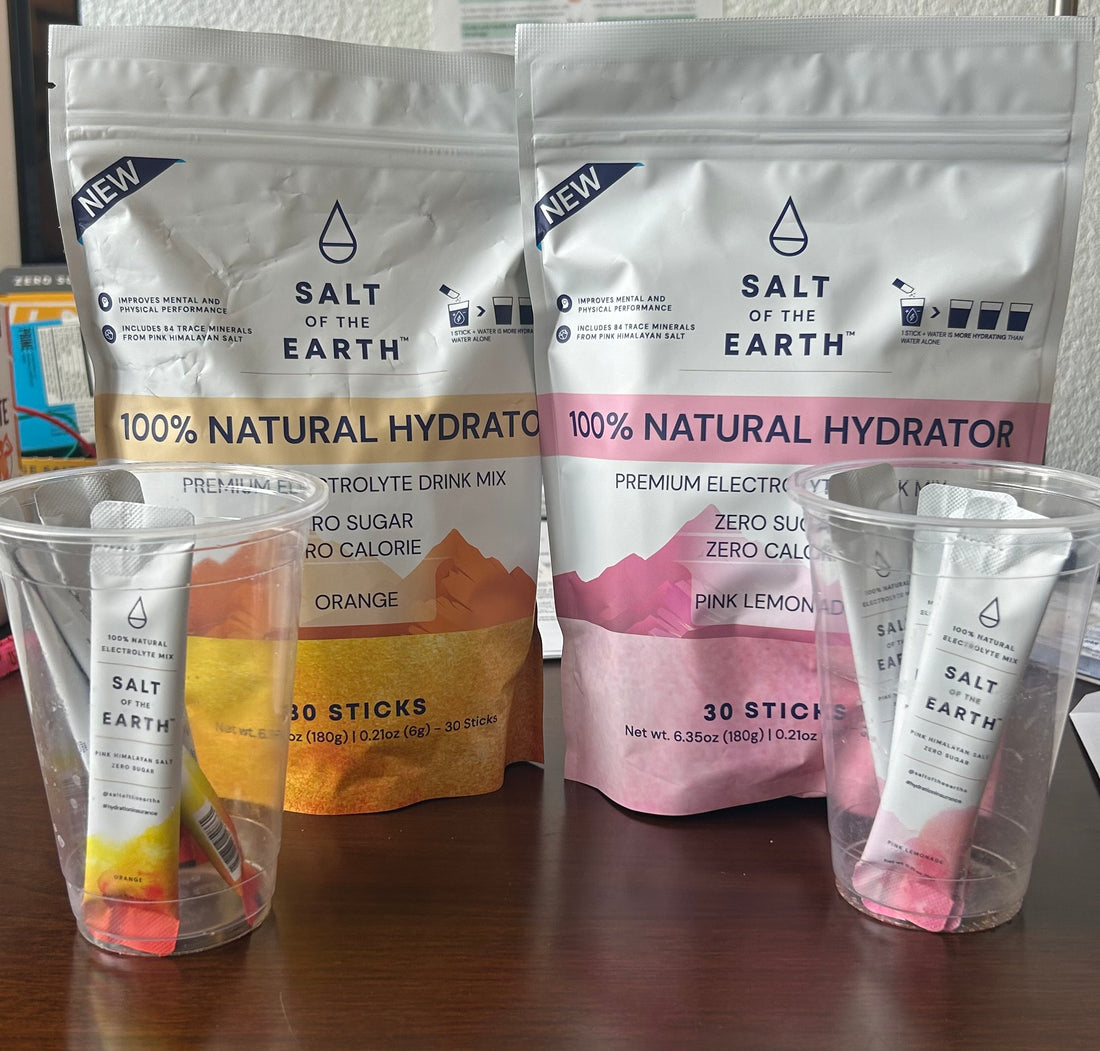
Are Electrolytes Salt? Understanding the Connection
Share
In the health and wellness community, there's often a question that surfaces: "Are electrolytes salt?" This query reflects a common curiosity about the relationship between electrolytes and salt, especially in the context of hydration and nutrition. In this blog post, we'll explore the connection between electrolytes and salt, clarifying their roles and importance in our bodies.
What Are Electrolytes?
Electrolytes are minerals in your body that have an electric charge. They are vital for many bodily functions, including regulating nerve and muscle function, hydrating the body, balancing blood acidity and pressure, and helping to rebuild damaged tissue. The most common electrolytes found in the human body are sodium, potassium, calcium, magnesium, chloride, phosphate, and bicarbonate.
The Role of Salt in Electrolytes
Salt, specifically table salt or sodium chloride, is a compound consisting of two electrolytes: sodium and chloride. Both of these are crucial for fluid balance and nerve transmission. When salt is dissolved in fluid, it breaks down into separate sodium and chloride ions, which are then absorbed by the body as electrolytes.
Are Electrolytes Salt?
While not all electrolytes are salt, salt is a source of electrolytes. Here’s how they are connected:
-
Sodium is a Key Electrolyte: Sodium, a major component of salt, is one of the essential electrolytes in the body. It plays a critical role in hydration by helping to retain water in the body.
-
Electrolytes Go Beyond Salt: Other electrolytes, like potassium, calcium, and magnesium, are not derived from salt but are equally important for bodily functions. They are found in various foods and supplements.
-
Balance is Crucial: The body needs a balanced assortment of electrolytes to function properly. Too much sodium (salt) intake without other electrolytes can lead to imbalances and health issues.
Importance of Electrolyte Balance
Maintaining the right balance of electrolytes is crucial for health. This balance is typically managed by consuming a varied diet that includes different sources of electrolytes. For those who need additional support, such as athletes or individuals with certain health conditions, electrolyte supplements like Salt of the Earth can be beneficial.
Conclusion
In summary, while salt is a source of electrolytes (specifically sodium and chloride), it is not the only one. A variety of minerals fall under the electrolyte category, each playing a unique role in maintaining health. Understanding the connection between salt and electrolytes is key to managing a healthy electrolyte balance.
For more information on electrolytes and how to maintain a healthy balance, visit drinksote.com. Discover the world of electrolytes and how they contribute to your overall health and well-being.

